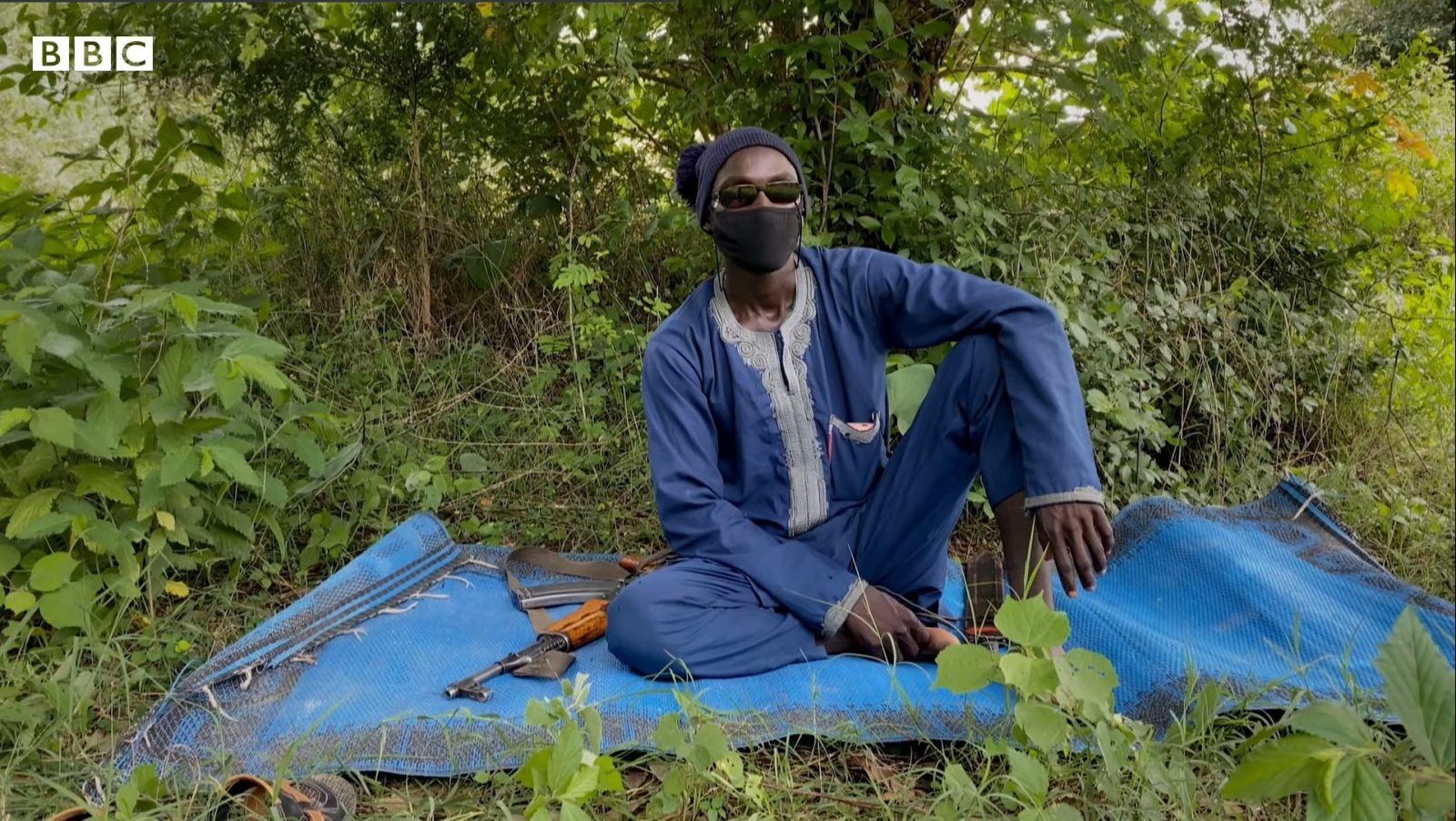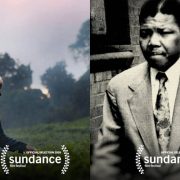In The Bandit Warlords of Zamfara, Yusuf Anka takes great risks to get answers to the questions at the root of the violent conflicts in Zamfara: “Who are these bandits? What do they want?”
By Vivian Nneka Nwajiaku
“Zamfara State, Northwestern Nigeria. Hausa vigilantes, along with government troops, are celebrating the destruction of a Fulani bandit camp. Two tribes, which have lived peacefully side by side for centuries, are turning on each other.” These are the first words from the narrator of BBC Africa Eye’s 2022 documentary, The Bandit Warlords of Zamfara.
The narrator is Yusuf Anka, a law student who was raised in Zamfara, the son of a Fulani mother and a Hausa father. On a journey three years in the making, Anka covers violent conflict in Zamfara, where “thousands of young Fulani have joined ultra-violent bandit gangs” that attack villages and abduct and kill the villagers, and “Hausa communities have formed vigilante militias to protect themselves”, but also killing innocents in the process.
In The Bandit Warlords of Zamfara, Yusuf Anka takes great risks to get answers to the questions at the root of the violent conflicts in Zamfara: “Who are these bandits? What do they want?” To unearth these answers, he interviews victims of the violence, but also establishes contact with the perpetrators, with warlords and gang leaders speaking to him on camera.
His investigation brings to light the conditions that underlie and exacerbate the crisis, both financial and ideological, from lack of cattle routes and veterinary hospitals, land disputes and water scarcity, to tribalism, poverty, climate change, and bad governance.

One such warlord, with a bounty on his head, tells Anka: “We only protest with guns. We know no journalists. We don’t know where to protest. Our protest is to take up arms and storm villages. That’s when the government will wake up and acknowledge our problems.”
It’s a difficult but important watch, a haunting picture of lawlessness, violence, and conflict. And it’s quite explicit in showing how young men are armed with AK-47 and used in ensuring instability in these communities, and how, in crises like this one, women and children suffer the most impact.
In one attack that was similar to the methods of Boko Haram, nearly 300 schoolgirls were abducted from a government school, including five of Anka’s relatives. And in one of many jarring clips, as a group of bandits set out on their motorcycles, one of those left behind calls out, “Bring us something back.” The response is: “We’ll bring you another woman.”
On 13th June, 2025, a great tragedy occurred in Benue State, Middle Belt, Nigeria, where hundreds of people were killed in a massacre in Yelwata village, a farming community. An escalation of the decades-long herder-farmer conflict in the state, government reports put the death toll at 151, but community leaders hold that more than 200 people died. According to a situation report by the National Emergency Management Agency (NEMA), “over 3,000 individuals, including many women and children, have been displaced.”
The Bandit Warlords of Zamfara is not in any way an exposé on the tragic Benue massacre, but it is a valuable watch that provides some insight into tragedies of this nature, why they thrive in Nigeria, the discrepancies between official reports and the truth, and the role the government and law enforcement play or fail to play.
Runtime: 50 minutes
The Bandit Warlords of Zamfara is available to stream here.
Vivian Nneka Nwajiaku is a writer, film critic, TV lover, and occasional storyteller writing from Lagos. She has a master’s degree in law but spends most of her time reading about and discussing films and TV shows. She’s particularly concerned about what art has to say about society’s relationship with women. Connect with her on X @Nneka_Viv



